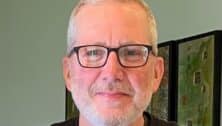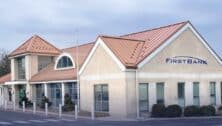Chester County Leadership – Jeff March
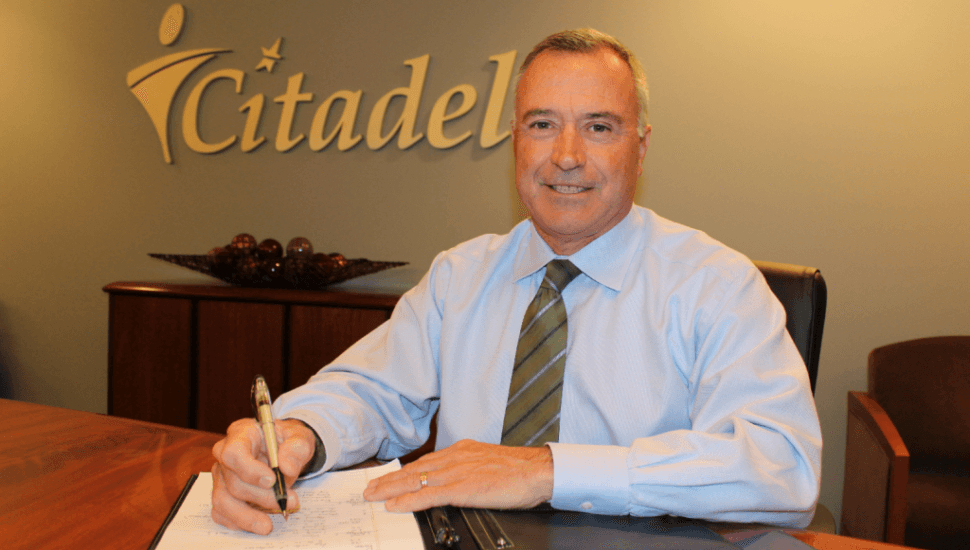
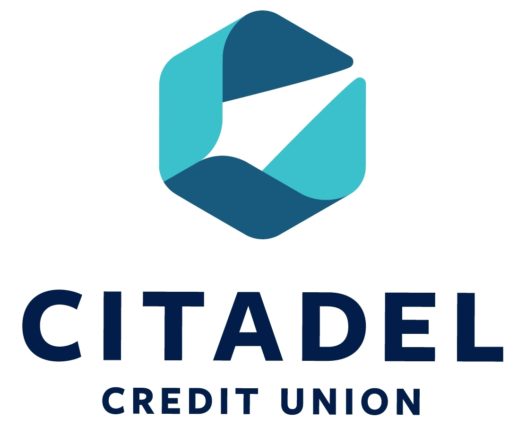
Citadel Federal Credit Union CEO Jeff March tells VISTA Today what he remembers about growing up in Parkesburg and Coatesville, how his father’s death during Jeff’s junior year in college forced him to grow up quickly, his chance meeting of Lukens Credit Union president Chuck Williams while serving on jury duty in 1985 and how his company benefits from the thousands of hours of service Citadel employees generously give community organizations and causes across Chester County every year.
Where did you grow up, Jeff?
I was born in Wilmington, Delaware, and spent the first five years of my life in Coatesville. My father grew up in Coatesville and my mother was raised in Wilmington. They met when my father was in the Navy and settled in Coatesville. My mother’s family doctor was in Wilmington, so that’s where I was born.
Where were you in the birth order?
I was the first child in a family of seven children. Both my parents came from large families; my mother was one of 13 children; my father was one of 11 children.
Did your family stay in Coatesville?
No, my parents moved us to a farm on the south side of Parkesburg when I was five. The farm sat on Route 10 behind what is now the Beale Mansion that sits on top of the hill.
What do you remember about Parkesburg?
I took the bus into Coatesville every day to go to the Catholic school. The highlight of my day was taking the bus home and rushing out to help the farmer round up his herd of cows for milking time. Mechanical pumping equipment was being introduced, so I didn’t get to do much milking. What was remarkable about the experience for me was how different each animal was. Each cow had its own name and personality and had to be treated differently. It was a great lesson for me.
When did you move back to Coatesville?
We stayed in Parkesburg for five years and moved to 10th and Main Street in Coatesville at the end of fifth grade.
Did you continue to go to the Catholic School once you moved back to Coatesville?
Our family thing was to do first through fifth grade in the Catholic school to get our roots and then transferred to the public schools. So I transferred to Coatesville public school system when we moved.
What do you remember about Coatesville?
It was a great place. In the mid-1960s, Coatesville was a booming steel town with a beautiful downtown area where everybody walked everywhere. Even though we lived on the east side of town, we would frequently walk to the shopping district on the west side.
One of the things I loved about Coatesville at the time was the City’s parks programs. Coatesville had four community parks each with its own summer programs. Teachers out of school for the summer ran the programs, and that’s where we lived in the summertime. We were there when the parks opened at nine in the morning and didn’t head home again until the program finished at three in the afternoon. We played games against the other parks and got to meet people from every part of the city. It was a great time for us kids and helped the community feel like a tight community.
When you got to high school, what sports did you play?
I was smaller in stature than most of the other kids and since Coatesville was a pretty big school there was a lot of competition for most of the sports teams. I ended up being a wrestler and a soccer player. I was not the best soccer player on the field, but I always had a desire to succeed and win. I didn’t have a lot of talent but I gave everything I had.
Where did that drive to win come from, Jeff?
That drive came from my parents and the City of Coatesville. Mom and dad had a great work ethic, as did the entire town. My mom and dad did everything they could to make life better for us. Dad, who ran Lukens Steel’s transportation department, usually had two jobs and stretched every dollar as far as he could to make sure we weren’t cheated out of things in life. Mom was the keeper of the house and made sure we did our chores. I shared a bedroom with two sets of bunk beds with three brothers. By no means was it a wealthy life, but we were happy.
Any jobs in high school or college that stand out?
My first job was pumping sodas in Sharp’s Pharmacy in Coatesville. I would try to make people feel welcomed when they walked in the front door. I greeted them with a smile and tried to learn their names. That made the job so much more fun. I also washed buses for my mother’s family bus company in Talleyville, Delaware along 202 north of Wilmington during the summers and worked at a beer distributor with my brother for a summer as well.
What lessons did you take from those jobs that stay with you today?
Try to make every customer experience a positive one by treating everyone as an individual and recognizing I don’t know what that person’s life that day or that week was like before they came in contact with me. Even today, when I meet someone new, I look for a way to connect with them and make them feel important.
What kind of music were you listening to back then?
I was blowing my brains out with hard rock! I would put the music on the stereo and crank the volume up and just listen. Now, when my youngest son, who is 12, hops in the car and turns the tunes on the radio and cranks up the volume, I respond the same way my parents did, telling him to, “turn that down!”
As the oldest child, what pressures did you feel?
None really, not until April of my Junior year in college. That’s when everything changed. I was at Indiana University of Pennsylvania northeast of Pittsburgh. I went to Indiana to get away from home and get out on the road and experience life. One evening my younger brother called to tell me dad had a heart attack, and that I’d better get home. I loaded the only suit I had into my VW bug and drove home that night. By the time I got home my father, who had complained of not feeling well after work and went up to lay down instead of eating dinner, had died.
You had to grow up pretty quickly?
I did. I was in college majoring in accounting and finance and mom, whose work had always been around the house, was left with six kids. For the first time in my life, I felt the pressure. I matured pretty quickly in a period of four or five weeks.
Did you stay in school after your father’s death?
I did and finished on time. I figured out I had to get straight A’s and really buckled down. The Coatesville Community really stepped up to the plate. The gentleman who owned the house we lived in, told my mother our family could stay there as long as we wanted and promised he would never increase the rent. Another family stepped up and offered to pay the Catholic school tuition for my younger siblings still in elementary school. It was exciting to watch the Coatesville community rally around mom and our entire family.
After college, who saw potential in you and gave you the break that launched your career?
My mother had my father’s life insurance but there was no goofing around, I had to get a job. I took a job doing financial reporting and analysis with Girard Bank in Philadelphia immediately after graduating. I worked in a small department of about eight people. I was on the job about three months, and my boss takes me to lunch and tells me I’m working too hard, that I was producing more work than anyone and I should slow down to meet the output of the other people in my department. That wasn’t going to happen and eventually, I transferred out of his group.
During the time I was at Girard, the bank was merging with Mellon Bank in Pittsburgh, and while I knew I would do well in the merger, I started to look around for another job with a smaller company. I made the decision to look during the Jimmy Carter era when interest rates were high and jobs were somewhat hard to find.
I went on Jury duty in West Chester. Back then jury duty lasted a whole week, not the two days we have now. I was getting work done while I was waiting to be seated on a jury. One day this guy asks me what I’m working on. I tell him and find out his name is Chuck Williams, the CEO of Lukens Credit Union.
At the time, Lukens had one branch in South Coatesville. Chuck told me Lukens was looking to expand, and he was looking for someone to fill an open accounting manager’s position and asked me if I would be interested. I thanked him but working for a 20-person, one-branch credit union in Coatesville wasn’t what I had in mind. However, I had a desire to come back to Chester County and agreed to come in for an interview. Three or four months and several interviews later I took the job thinking the Lukens position would be a transition job, that I could go back on the job market if the job at Lukens didn’t work out.
I was employee number 22 and had an office in the basement of the building where the ping-pong table had been. All of the sudden, I had opportunities to do things I would have never had in a bigger bank. Chuck was 6’ 6” tall and about 280 pounds and the kind of guy who was always encouraging me to do better. He was a great person, gave me a lot of opportunities, and had great people skills. He taught me the importance of treating everyone around me well.
What challenges and opportunities does Citadel have going forward?
In the early 1990’s Lukens Steel laid off half its workforce in a short period. Meantime, we were asking people to put money in the Lukens Credit Union. People would look at us and ask, ‘are you nuts?’ We did an extensive name search and settled on Citadel. We chose Citadel because the definition is “fortress” and “protector of the city”, the “pillar of the community.” We felt like the name was inspirational and something we could grow into.
And grown into it we have. We’ve improved the lives of our employees and staff, the lives of the members and customers with whom we interact, as well as serve the communities where we operate. While Citadel is very involved in the community, we highly, highly encourage our employees to donate their time to the communities where they live and work. We give all employees paid time off to work with the nonprofit or charity group of their choice. We believe in being part of the community.
What impact does that community orientation have on the day-to-day operations of Citadel, Jeff?
Our community approach has three distinct benefits. First, since our members are our shareholders, serving in the community gives us a chance to pay them back. Second, our employees get positive feedback both about their own service and Citadel’s community service reputation when they’re doing community service. Finally, our employees get to know each other better and collaborate better when they work on a community project together.
Finally, Jeff, what is the best piece of advice you ever received?
First, it would be the example that actions speak louder than words that I got from my mom and dad when I was growing up. How they ran their lives and what they did for the betterment of our families spoke volumes to me and is with me every day.
I also remember a book someone gave me many years ago called “The Celestine Prophecy.” The book talks about how coincidences that happen in our lives aren’t always coincidences, but rather events that were meant to happen. I look at coincidences differently now and think perhaps I was meant to be here or meet this person. I find myself asking, ‘why am I here?’ and ‘what should happen from this point?’ and letting that influence the conversation and decisions I make.
Connect With Your Community
Subscribe to stay informed!
"*" indicates required fields



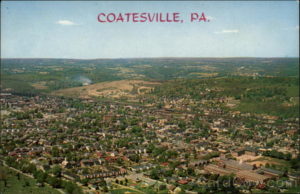
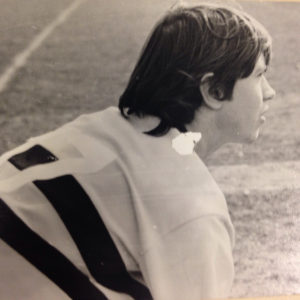
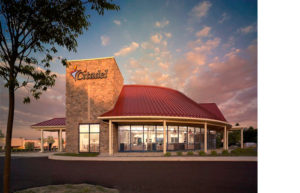
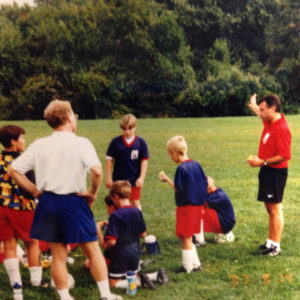



































![95000-1023_ACJ_BannerAd[1]](https://vista.today/wp-content/uploads/2023/03/95000-1023_ACJ_BannerAd1.jpg)







